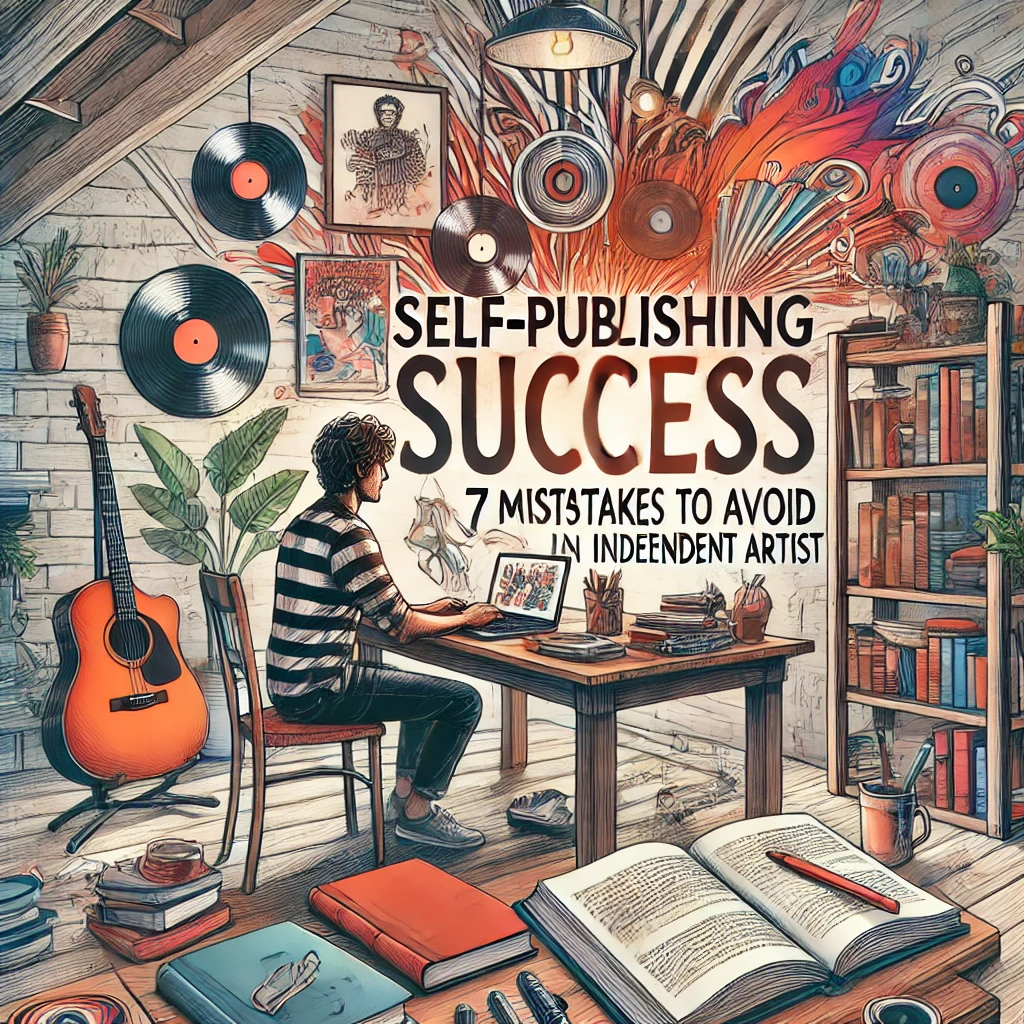
Hey music enthusiasts! Let’s dive into the world of self-publishing for aspiring artists, including the latest options available and what it really takes to make it work. Here’s an updated look at those seven common mistakes, plus some fresh insights on self-publishing:
- Underestimating the power of self-publishing
With today’s technology, self-publishing is more accessible than ever. Platforms like TuneCore, CD Baby, and DistroKid allow artists to distribute their music across major streaming services7. However, don’t fall into the trap of thinking it’s an easy path to success – it requires dedication and hard work. - Neglecting legal protection
Before you start self-publishing, make sure to copyright your music with the United States Copyright Office4. This step is crucial for protecting your work and ensuring you have legal proof of ownership. - Forgetting to register with PROs and SoundExchange
To collect royalties, you need to register with a Performing Rights Organization (PRO) like ASCAP, BMI, or SESAC14. Don’t forget to sign up with SoundExchange too, which collects digital performance royalties for your recordings4. - Overlooking the business side
Self-publishing means you’re both the artist and the publisher. You’ll need to handle tasks like networking, seeking sync deals, and negotiating licenses1. Develop your business acumen to navigate these responsibilities effectively. - Failing to promote effectively
With self-publishing, promotion falls entirely on you. Utilize social media, create engaging content, and reach out to music supervisors for sync licensing opportunities4. Remember, visibility is key in the crowded digital music landscape. - Not understanding the financial implications
While self-publishing allows you to keep 100% of your royalties, it also means investing your own time and resources3. Be prepared for upfront costs and understand that building a sustainable income takes time. - Ignoring the importance of quality
In the world of self-publishing, the ability to recognize and create hit-worthy songs is crucial5. Continuously work on improving your craft and stay open to feedback to ensure your music stands out.
Skills and Resources Needed for Self-Publishing
To successfully self-publish, you’ll need:
- Music production skills: Ability to create high-quality recordings.
- Digital literacy: Familiarity with music distribution platforms and social media.
- Business acumen: Understanding of copyright laws, licensing, and royalties.
- Marketing skills: Capacity to promote your music effectively.
- Financial management: Ability to budget for recording, promotion, and other expenses.
Realistic Possible Outcomes
Self-publishing can lead to various outcomes:
- Building a fanbase: Platforms like Bandcamp allow you to connect directly with fans and sell your music7.
- Earning streaming revenue: While individual streams may only generate pennies, accumulating streams can provide a steady income6.
- Licensing opportunities: Self-published music can be licensed for use in films, TV shows, or commercials.
- Creative control: You maintain full rights to your music and decide how it’s used3.
- Stepping stone to bigger opportunities: Success in self-publishing can lead to collaborations or deals with larger labels.
Remember, self-publishing isn’t a guaranteed path to stardom, but it offers a way to share your music with the world and potentially build a career on your own terms. Stay persistent, keep improving, and who knows? You might just be the next big thing in music!
